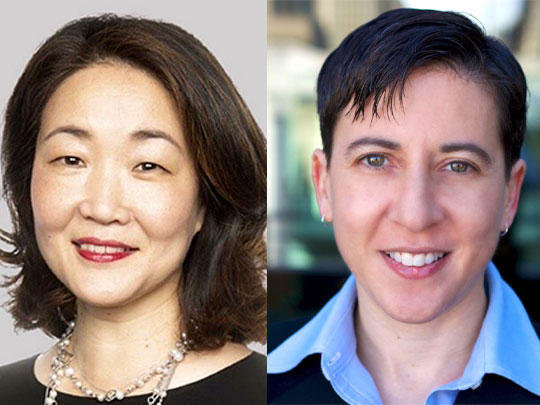Two New Members Join Presidential Advisory Council on HIV/AIDS
Topics

The Presidential Advisory Council on HIV/AIDS (PACHA) welcomed two new members on Monday, November 15, 2021. ADM Rachel Levine, MD, Assistant Secretary for Health, administered the oath of office during the Council’s virtual meeting for the new members:
- Juliet K Choi, JD, President and Chief Executive Officer, Asian & Pacific Islander American Health Forum
- Jennifer Kates, PhD, Senior Vice President and Director of Global Health & HIV Policy, Kaiser Family Foundation
Ms. Choi and Dr. Kates join eight other new members appointed to the Council in August.
ADM Levine also announced that her office is seeking nominations for PACHA members and that we have published an announcement in the Federal Register with details. The application period is open until January 3, 2022, and we encourage you to apply or to nominate someone.
The PACHA provides advice, information, and recommendations to the Secretary of Health and Human Services regarding programs, policies, and research to promote effective prevention, treatment, and cure of HIV disease and AIDS. This includes recommendations to the Secretary regarding the development and implementation of the Ending the HIV Epidemic in the U.S. initiative and the National HIV/AIDS Strategy.
The Council may have up to 25 members, including the chair. Members and the chair are selected by the Secretary of Health and Human Services from authorities with particular expertise in, or knowledge of, matters concerning HIV and AIDS. Council members are invited to serve for overlapping terms of up to four years.
We are pleased to welcome Juliet and Jen to PACHA and look forward to their advice and ideas as PACHA advances its work. They bring important experience from immigration, civil rights, minority health, global health, and domestic HIV policy. Those perspectives will help the Council consider and address these interconnected issues as it continues to offer recommendations about the federal government’s response to HIV in the U.S. and around the globe. We are grateful for their commitments to making a difference in the response to HIV by sharing their wisdom, experience, and time.
Read biographies of the new members on the PACHA Members and Staff page on HIV.gov, where you can also learn more about PACHA and access materials from their meetings.